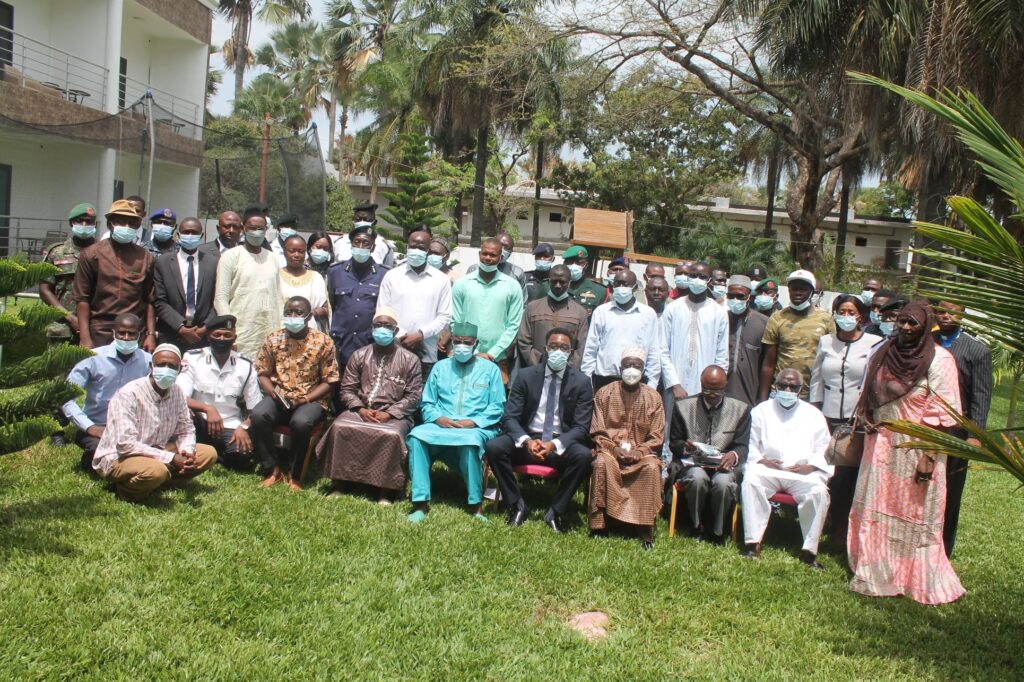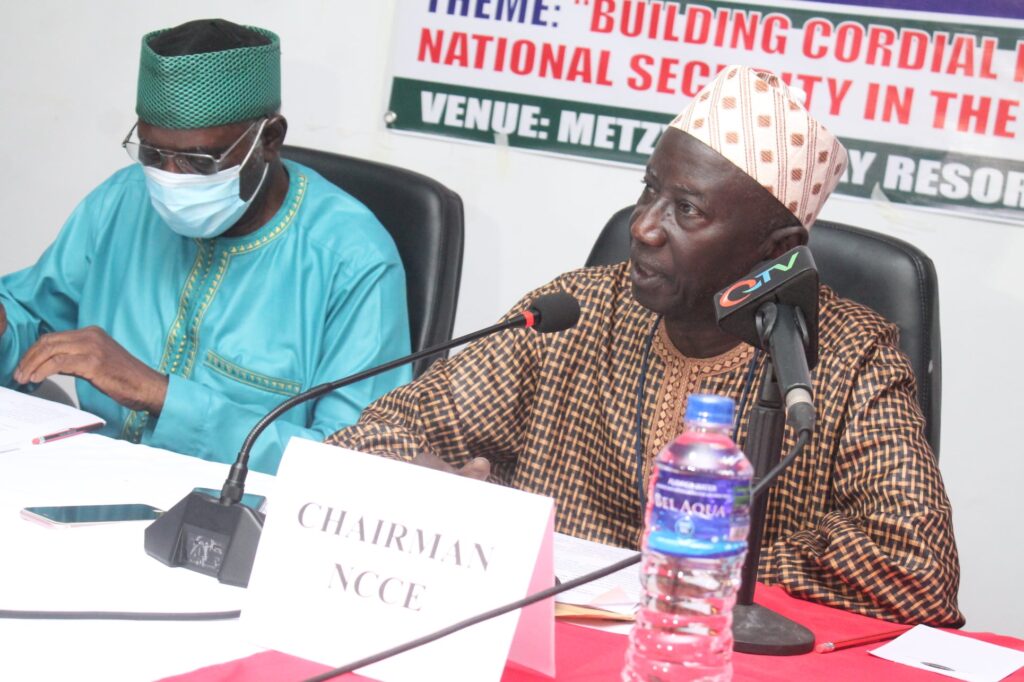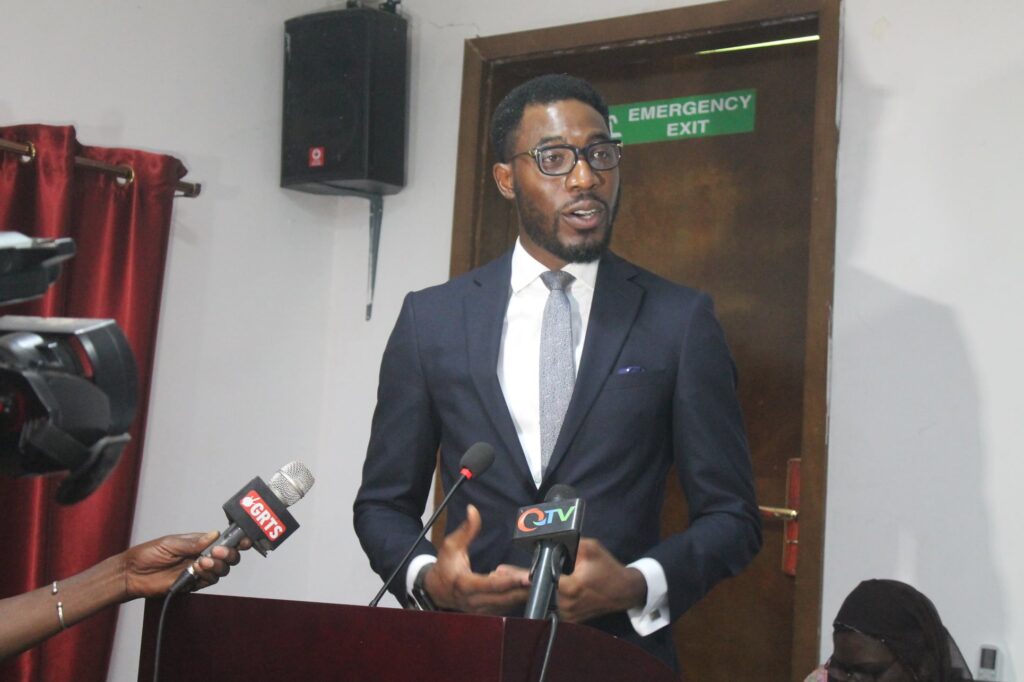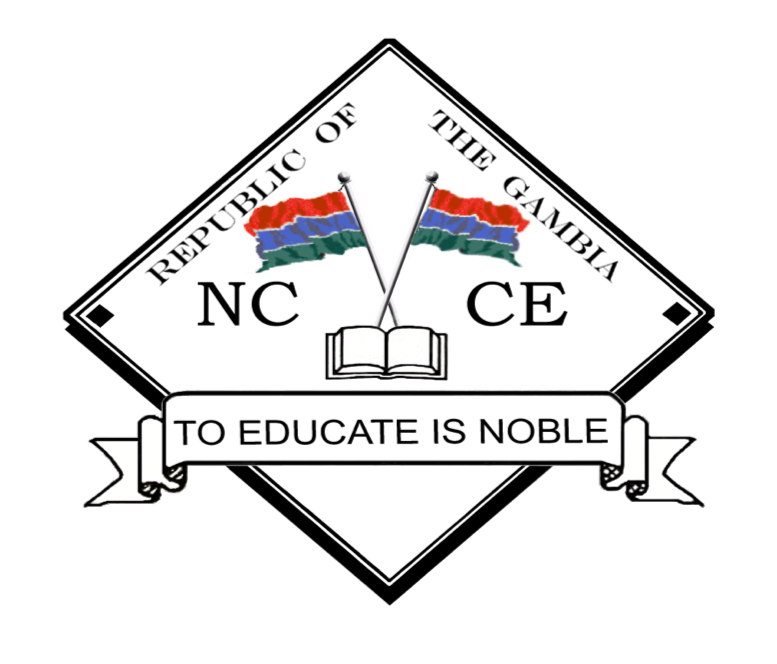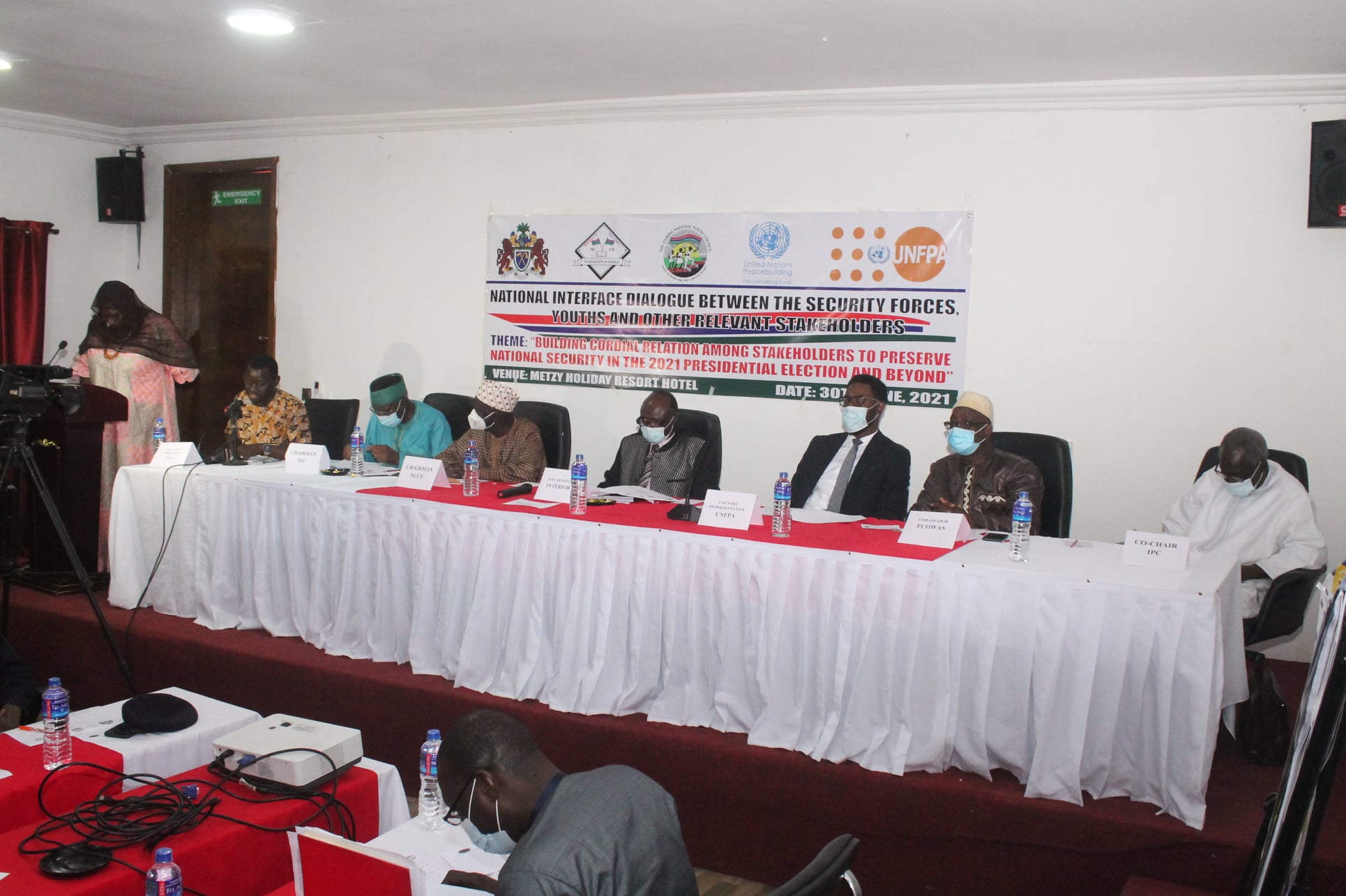The National Council for Civic Education with support from the UNFPA through the UN Peacebuilding Fund organized a day-long interface on 30th June 2021 to discuss the possible challenges and threats to peace throughout the election cycle and find efficient proactive and containment strategies to ensure violent free elections. The dialogue brought together security forces, youths, pressure groups, and other relevant stakeholders with the theme ‘Building Cordial Relation Among Stakeholders to Prevent National Security in the 2021 Election and Beyond’.
Speaking at the opening ceremony, Alh. Sering Fye, chairman, National Council for Civic Education (NCCE), has said that after nearly five years since the ousting of dictatorial rule, The Gambia is still at the crossroads adding that Gambia’s nascent democracy will face a serious litmus test on December 4th, when the country votes in a presidential election. He therefore said it will be a pivotal moment to sustain the momentous achievements of 2016 and cement the democratic trajectory of the country.
Musa Balajo, deputising for the resident representative of the ECOWAS Permanent Mission in The Gambia, said the dialogue between security forces, youth and stakeholders would go a long way to cement good relationship and foster peace considering the forth coming elections. He highlighted that pre and post-election periods can be very challenging as events are unfolding which will require tactful handling of matters arising.
He expressed ECOWAS commitment to partner with stakeholders to support the process for a free, fair and peaceful democratic elections to be held in The Gambia come December 2021.
Kunle Adeniyi, UNFPA country representative, said the dialogue could not have come at a better time as the people of The Gambia prepare for the 2021 presidential elections. He said the conflict and development analysis report of The Gambia verified that ‘the young are the single most important demographic of the country in terms of their numbers and ability to author and influence the transition in stabilising or destabilising ways with 60% of the population under the age of 25.
The Chairman Independent Electoral Commission (IEC), Alieu Momarr Njai, said dialogue, consultation, cooperation and collaboration with each other on national issues in the conduct of elections would only result in better understanding and synergy in tackling and resolving potential threats and to collectively prevent problems that could otherwise be undesirable from happening.
He expressed IEC’s commitment to conduct an all-inclusive and peaceful electoral activity for the year 2021 and called on all stakeholders to support the election process.
Mamadi Saidykhan, deputising for the minister of Interior, said elections worldwide are critical and highly sensitive and thus require high degrees of state caution for preparedness with all stakeholders. He added that maintaining law and order is required for peace and security in the electoral process, which is therefore a national obligation by everyone.
For Halifa Sallah, co-chair, Inter Party Committee (IPC), the education that the people should receive is to know that they are the only majority constituent of the country. He said the engagement is to interrogate the past and present in order to shape the future. Sallah said in the 2016 elections, it was the Gambian people who saved themselves and should be proud of themselves for this.
